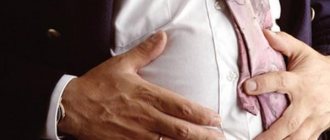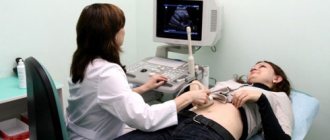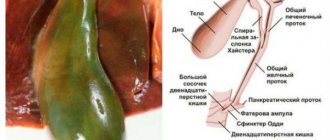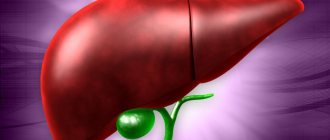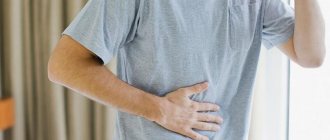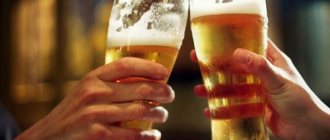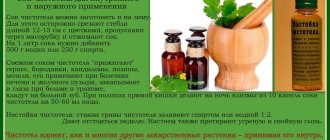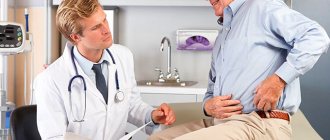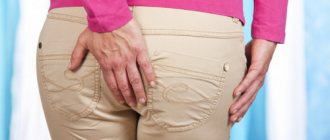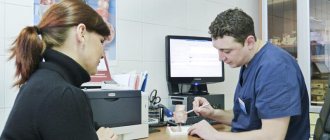Surgery to remove the gallbladder (cholecystectomy) is often an effective method that allows a person to part with constant and painful pain. However, all patients after such an operation have to adhere to some restrictions in their diet and lifestyle in general. A special point after removal of the gallbladder is the ban on the use of alcohol.
Many patients after cholecystectomy are interested in the question: when can you start drinking alcohol after removal of the gallbladder, what will the body’s reaction to its use be, and what alcoholic drink is allowed for people after such an operation?
Why is alcohol prohibited for cholecystitis?
The use of modern diagnostic methods has shown what complications it leads to. It is worth taking all these features into account in order to understand what possible result we will get due to such mixing. It can often be:
- the outflow of the enzyme and its production are disrupted. The fluid is produced in large quantities, stretching it;
- the breakdown product of ethyl has a toxic effect on tissues, which contributes to the formation of free radicals;
- there is a violation of fat metabolism, which leads to complications in the removal of cholesterol and the formation of stones from it;
- The microflora of bile changes, bactericidal properties decrease and irritation of the mucous membranes more often develops.
If an illness is detected, drinking strong drinks is completely contraindicated. And you shouldn’t think about what kind of alcohol you can drink if you have cholecystitis. If you do not adhere to this recommendation, you can get new education. In addition, narrowing of the ducts can be caused and, as a result, malfunctions of the excretory system.
If previously the disease was in an acute form, then in a fairly short period of time it can become chronic. If the result of surgery was removal of the gallbladder, then you should forget about drinking alcohol-containing drinks. The first couple of years this is generally unacceptable. You can then drink a small amount of wine, although you should consult your doctor first.
Can I have non-alcoholic beer for cholecystitis? After splitting, a toxin appears, which, due to the lack of an organ, can be poorly excreted. Thus, intoxication will increase and worsen the person’s condition. In addition, its components tend to have a negative effect on the liver. In this case, there is an increased load and a decrease in the body’s defenses.
Rules of behavior in case of illness
If a disease is suspected, doctors prescribe biochemical, clinical, radiological, and ultrasound examinations. Based on the data obtained, an accurate diagnosis is made and treatment is prescribed. Drug therapy includes drugs that cannot be combined with alcohol. Because of this, the effect of some of them is significantly reduced if you drink alcohol. This combination has negative consequences for the patient.
In addition to taking medications, the patient is prescribed diet therapy, which prescribes not to eat certain foods. What is needed for this:
- give up confectionery;
- exclude fatty fish and meat from the menu;
- eliminate freshly baked flour products from your diet;
- completely avoid legumes and mushrooms;
- exclude sour berries and fruits;
- do not drink strong coffee, cocoa and products made from it;
- Do not use spices in cooking.
As for sugar, it can be included in the diet, but in limited quantities. For those diagnosed with cholecystitis, the maximum norm is 70 grams. It is also advisable to reduce the amount of salt used. Its consumption rate should not exceed 10 grams per day.
To avoid stagnation of bile, split meals are required. It should also be followed in case of chronic illness. The minimum number of meals per day is 5 times. In addition to breakfast, lunch, and dinner, you can also include an additional afternoon snack, as well as a second breakfast. It is best to eat at a strictly defined time, without being distracted from the process.
Consequences of drinking alcohol
Since this disease is associated with complications of the digestive system, it is naive to think that its use will not in any way affect the performance of this system. First, the emergence of pathogenic microflora will lead to inflammation, which can spread to the pancreas. As a result of obstruction of the canals, deterioration of the condition in the stomach and duodenum may occur.
The next manifestation may be an increase in the production of hydrochloric acid and contributing to the development of reflux. It manifests itself in the form of ejection of contents into the esophagus and its irritation.
Regarding red wine for cholecystitis, it has both positive and negative effects. It is credited with antitumor properties. It is considered very useful, as it contains resveratrol and other beneficial components. When fermenting grape juice, their quantity does not decrease, but rather increases. But about the amount of its use to obtain a positive effect, it is worth consulting with a specialist.
Among the large selection of grape alcoholic drinks, it is advisable to give preference to dry wine for cholecystitis, since it does not contain sugar or other ingredients. Remember that anything too much is not healthy.
Similar articles:
The harmful effects of alcohol on all human organs and systems have been known for a long time. But there are some cases when its use is completely excluded. Is it possible to drink alcohol if you have cholecystitis? It is this combination that can lead to quite serious consequences. Since this disease is associated with problems of the digestive system, additional irritating factors can only aggravate the situation and significantly worsen the patient’s well-being.
Alcohol during cholecystitis increases the load on the biliary system and promotes the formation of stones. The resulting stones disrupt the flow of bile, which is a prerequisite for the process of inflammation in the bile reservoir. Alcoholic drinks weaken the immune system, inhibiting the ability to resist diseases, and harm the health of every person, especially those with gallbladder disorders. Therefore, for people with diseases of the biliary system, they are prohibited.
Alcoholism is one of its most common causes, since it directly affects the condition of the hepatobiliary system. In some cases, it is not the main factor that provoked the development of cholecystitis, but can cause an exacerbation of the disease.
Complications and consequences
Drinking alcohol in pathological conditions of the biliary system is fraught with the development of other diseases localized in the gastrointestinal tract. Due to the obstructed outflow of bile, the inflammatory process in the pancreas begins to activate - pancreatitis. Often, with regular consumption of alcoholic beverages, a sharp attack of acute pancreatitis occurs.
Another inflammatory process in the pancreas, stomach and duodenum is activated when the gallbladder duct is blocked by a calculus.
Alcohol during cholecystitis additionally increases the production of hydrochloric acid, resulting in the development of reflux. That is, the contents of the stomach are thrown into the esophagus, irritating its mucous layer.
Along with cholecystitis, people who abuse alcohol also experience gastritis and peptic ulcers.
Most often, cholecystitis is accompanied by liver disease. If a person regularly drinks alcoholic beverages, then cirrhosis, fatty hepatosis, hepatomegaly are common phenomena.
In addition, the following conditions develop:
- Vitamin deficiency occurs due to disruption of metabolic processes and absorption of various microelements. Vitamin deficiency, in turn, leads to a lack of concentration of vitamin substances in the body, the result of which is anemia. That is, violations of hemoglobin synthesis.
- Colon cancer is a serious complication that is directly related to gallbladder disease. Statistics have proven that such people most often develop cancer. This diagnosis is also often given to people who have had their gallbladder removed.
Bowel cancer - a possible complication
A complication of an extensive inflammatory process in the gallbladder is its deformation and, as a consequence, perforation of the walls. In this case, the bile that is in the bladder begins to go beyond the organ and poison the surrounding tissues. This complication can only be eliminated by cholecystectomy. That is, the gallbladder is surgically removed.
Alcohol has a negative effect on all organs, and with cholecystitis it increases the load on the bile ducts, promoting the formation of stones. Stones create favorable conditions for bile stagnation, which is why inflammation occurs in the gallbladder.
According to statistics, cholecystitis is becoming an increasingly common pathology. Pain and heaviness under the right rib after eating are alarming symptoms, and if present, you should consult a doctor. There are situations when, after overeating, you need to immediately seek help from specialists.
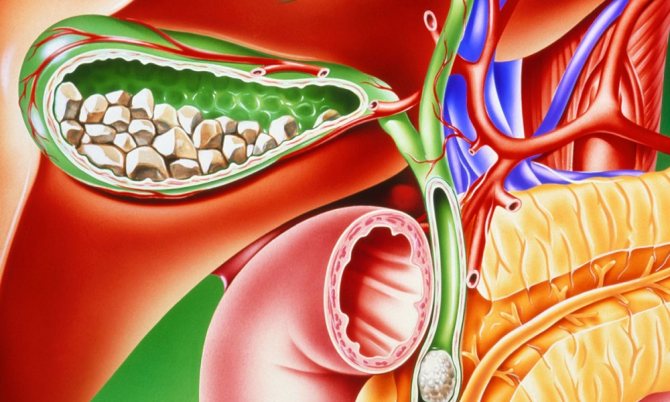
Alcoholic drinks for cholecystitis
During the treatment of cholecystitis, a strict diet is prescribed. The fact is that bile accumulates in the gallbladder before the digestive process begins. It is produced by liver cells and then moves along the bile ducts. As soon as food enters the stomach, the secretion flows into the duodenum. A large amount of bile is needed to digest fatty foods and alcohol, so such foods are excluded from the diet.
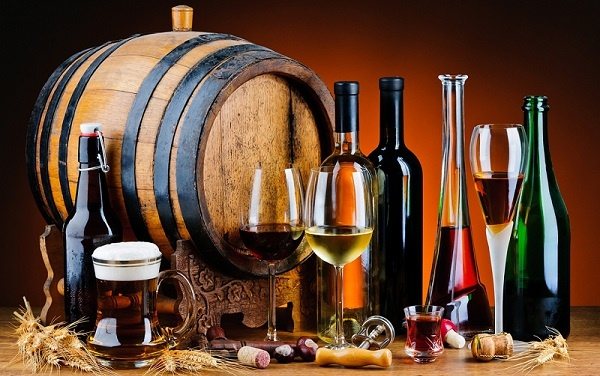
What happens in the body?
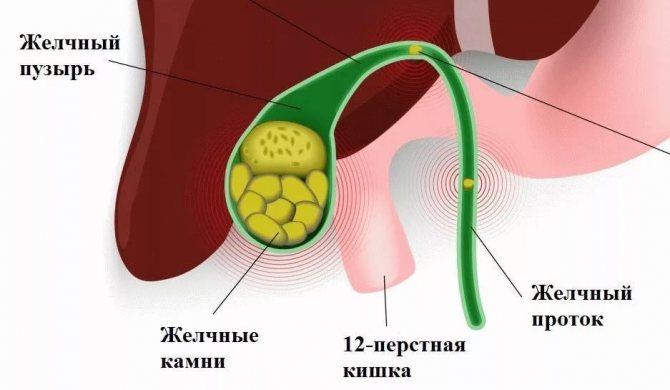
This aspect should be considered separately. To understand why you should not drink alcohol after removal of the gallbladder, you need to understand what processes occur in the body. If we consider the experience gained in medical practice, we can say that a full life without a gallbladder is quite possible, provided that the patient adheres to the right diet and gives up bad habits. It is impossible, of course, to say that nothing changes in the body after cholecystectomy. Some transformations are still taking place.
The gallbladder is a kind of reservoir in which bile is stored. The function of this organ is to process heavy fats, maintain the normal functioning of the pancreas and prevent the proliferation of bacteria. Bile secreted by the liver becomes less concentrated in the absence of a gallbladder. Its properties that promote the breakdown of fats and fight bacteria are significantly weakened. It is for this reason that the intestinal microflora is disrupted. Harmful bacteria that enter the body with food begin to actively spread. At the same time, digestive activity gradually slows down and becomes less efficient. The result is pain in the right hypochondrium, heartburn and a bitter taste in the mouth.
The main changes that occur in the body after removal of the gallbladder include:
- increased load on the bile ducts and liver;
- decrease in secretion concentration;
- changes in intestinal microflora;
- development of dysbacteriosis;
- direct flow of bile from the liver into the intestines.
Consequences of drinking alcohol
Alcoholic drinks have a detrimental effect on the gallbladder and the entire biliary system: Alcohol causes disruptions in the system of production and outflow of bile. Alcohol stimulates the production of green fluid by the liver, but at the same time a spasm of the sphincter of Oddi is observed. As a result, the increased volume of bile causes the gallbladder to stretch, unable to leave it. This is accompanied by inflammation of the organ and ducts.
When alcohol is processed, a toxic substance is formed - acetaldehyde. It affects tissue. In this case, the formation of free radicals in the bile occurs, which leads to cholecystitis and cholangitis. Alcohol poisoning leads to disruption of fat metabolism and accumulation of cholesterol in the bile organ. As a result, the formation of cholesterol stones occurs.
Alcoholic drinks cause changes in bile microflora. The green liquid loses its bactericidal properties. Infections and pathogenic microorganisms affect the bile organ, causing its inflammation. Alcoholic drinks negatively affect other organs and the entire body as a whole. The consequences of alcohol dependence are: vitamin deficiency; anemia; pancreatitis; oncological diseases of the intestine; metabolic disease.
These factors have an indirect effect on the outflow of bile and can lead to exacerbation of the disease and sudden death of the patient. Short-term euphoria from drinking alcoholic beverages is not worth health and life, so people with cholecystitis are strictly prohibited from drinking alcohol. Failure to take timely measures can lead to shrinkage of the pyriform organ. He loses his functions.
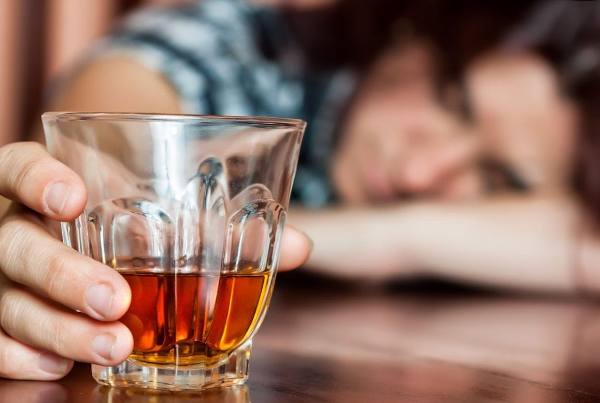
Alcoholism and frequent consumption of alcoholic beverages with inflammation of the gallbladder can cause serious consequences. Under the influence of ethanol, the bile ducts narrow, and stagnation of bile in the organ cavity is observed. Its composition changes, it becomes thicker, bile pigments and cholesterol accumulate in it. These connections become compacted and form stones.
Gallstone disease in alcoholism is a common occurrence. Stones in the gallbladder cavity clog the ducts and prevent the normal outflow of fluid. If not treated promptly, this can lead to dangerous conditions:
- hepatic colic - acute pain syndrome, which indicates the passage of stones through the ducts and damage to their walls with sharp edges;
- perforation of the walls of the biliary tract with the release of their contents into the abdominal cavity, sepsis and peritonitis;
- rupture of the gallbladder - this complication threatens the patient’s life and requires urgent surgical intervention.
Alcohol in acute cholecystitis is dangerous because it disrupts the balance of normal microflora. This leads to uncontrolled growth of pathogenic bacteria and the development of purulent complications. The inflammatory process extends, among other things, to the liver and organs of the gastrointestinal tract. For alcoholism, treatment will not bring results, and the patient’s condition will worsen.
Cholecystitis and alcohol
Is it possible to drink alcohol with acute cholecystitis? If a person has been diagnosed with this disease, then drinking alcoholic beverages is strictly prohibited. With chronic cholecystitis the situation is the same. There is an explanation for this. Alcoholic drinks provoke stagnation of bile in the bladder, which causes new stones to actively form. Another negative effect of alcohol is the narrowing of the bile ducts, which results in constant disruptions in the functioning of the biliary system.
Frequent consumption of alcohol provokes the transition of cholecystitis to a chronic form. This is due to the fact that alcoholic drinks entering the body are broken down into acetaldehyde and carbon dioxide. The first substance is a toxin that poisons the liver and the entire body as a whole.
Attention! Sometimes the cause of cholecystitis is damage to the gallbladder by pathogenic microorganisms. This will also be facilitated by the consumption of alcoholic beverages, as they disrupt the microflora of the organ.
There is another mechanism for the rapid manifestation of cholelithiasis - this is intoxication of the body, which occurs with regular consumption of alcohol. In this case, a violation of lipid metabolism occurs, as a result, the bile contains a lot of “bad” cholesterol. It is this that promotes the formation and enlargement of stones.
The bile ducts have a system of sphincters that separate them from the gallbladder. Thanks to them, bile enters the duodenum in a timely manner and the digestion process proceeds normally. When consuming even a minimal dose of alcohol, these sphincters no longer work as synchronously. As a result, the functioning of the biliary system is disrupted. Bile is excreted chaotically, in different quantities, and stagnation occurs.
When consuming fatty foods along with alcohol, bile production is increased, but the malfunction of the sphincters cannot cope fully. This leads to overstretching of the organ. Deformation of the organ and its complete filling leads to inflammation.
If the gallbladder was removed as a result of cholecystitis, then it is recommended to give up alcohol forever. Some doctors recommend not drinking alcohol for the first 2-3 years after surgery, and then you can allow yourself a small amount of wine. But it is important that beer, wine and other drinks begin to break down in the stomach and the acetaldehyde that is released severely poisons the body. Without a gallbladder, eliminating this toxin will be difficult. Therefore, intoxication of the body will be long-term with a concomitant inflammatory process in the gastrointestinal tract.
Is it possible to drink weak alcohol?
You need to know that drinks such as wine have a stronger effect than all other types of alcohol on the formation of stones in a person’s bile. Even in minimal quantities, it triggers the process of their growth in cholecystitis. Despite the low strength of beer, this drink cannot be drunk with cholecystitis, along with other types of alcohol. This is due to 3 main reasons:
- The intoxicating drink contains a large amount of gases, which can provoke additional inflammatory processes in the human gastrointestinal tract and exacerbation of the disease.
- Warm beer is unpleasant to drink, and cold beer provokes pain.
- Salty snacks with beer cause acute attacks in patients.
Can I have non-alcoholic beer for cholecystitis? After splitting, a toxin appears, which, due to the lack of an organ, can be poorly excreted. Thus, intoxication will increase and worsen the person’s condition. In addition, its components tend to have a negative effect on the liver. In this case, there is an increased load and a decrease in the body’s defenses.
Recipes
Recipes Let us briefly repeat what you can and cannot eat. Hypothyroidism. Possible: sea fish, seafood and seaweed, eggs, meat and other protein-rich foods, cereals, vegetables and fruits, fermented milk products. Rich in iodine: feijoa, seaweed ( kelp), squid, hake,
Is it possible to drink alcohol with cholecystitis? How does the disease manifest itself in people who do not abstain from contraindications? What are the risks of drinking alcoholic beverages when the walls of the gallbladder are inflamed? Questions that require a detailed and detailed answer. Cholecystitis refers to ailments of the digestive system, so the drinks consumed have a direct effect on the human body.
Alcohol after surgery
If the gallbladder was removed as a result of cholecystitis, then it is recommended to give up alcohol forever. Some doctors recommend not drinking alcohol for the first 2-3 years after surgery, and then you can allow yourself a small amount of wine. But it is important that beer, wine and other drinks begin to break down in the stomach and the acetaldehyde that is released severely poisons the body. Without a gallbladder, eliminating this toxin will be difficult. Therefore, intoxication of the body will be long-term with a concomitant inflammatory process in the gastrointestinal tract.
Frequent consumption of alcohol provokes the transition of cholecystitis to a chronic form
Removal of the gallbladder entails a change in the functioning of the organs surrounding the liver: pancreas, digestive tract, intestines. The responsibilities of the remote bubble are distributed among other participants in the processing of incoming food. Drinking alcohol at this time means putting your life in mortal danger.
Immediately after cholecystectomy (removal of the gallbladder), common reasons for prohibiting alcohol can be listed:
- After surgery, antibiotics are often used; combining them with ethanol is not recommended.
- Anesthesia used to relieve pain during surgical operations can change its function under the influence of alcohol.
Before and after surgery in the abdomen, intestines, dietary restriction is recommended. The consequences of forced starvation deplete a person’s vitality. The additional stress from the operation itself and the effect of alcohol in this state have an extremely adverse effect on a weakened body.
Low-alcohol drinks and beer increase fermentation reactions in the intestines, as a result of which the healing of tissue damaged by a scalpel slows down. It is necessary to take into account the patient’s condition, the protracted nature of the disease, which can be complicated by drinking alcohol. It is possible that the body may have an allergic reaction to the constituent ingredients of wine, cocktails, beer, and colored spirits.
Usually people refuse to drink alcohol of their own free will: the digestive system does not always cope with the increased load, responding with severe pain that occurs on the right side. Nausea, vomiting, and stool upset also appear systematically. Signs of indigestion do not appear in all patients, but few decide to continue to tempt fate, putting their lives at risk.
You may not notice a deterioration in health for a long time after drinking alcohol, but this does not mean that the body does not react to the irritating properties of alcoholic beverages taken. If you do not follow the diet after cholecystectomy, concomitant diseases occur: cholangitis, pancreatitis, cholecystitis, liver cirrhosis and other serious consequences.
Many operated patients believe that they can drink a little wine, vodka or beer if the person feels well with a hangover. However, it must be taken into account that the negative effects of alcohol often do not appear immediately. It may take several months or years until changes in the body that have already become irreversible appear.
By following a therapeutic diet and a lifelong abstinence from alcoholic beverages, a person’s condition gradually returns to normal after surgery. After removal of the gallbladder, only those who do not value their life and health continue to drink alcohol.
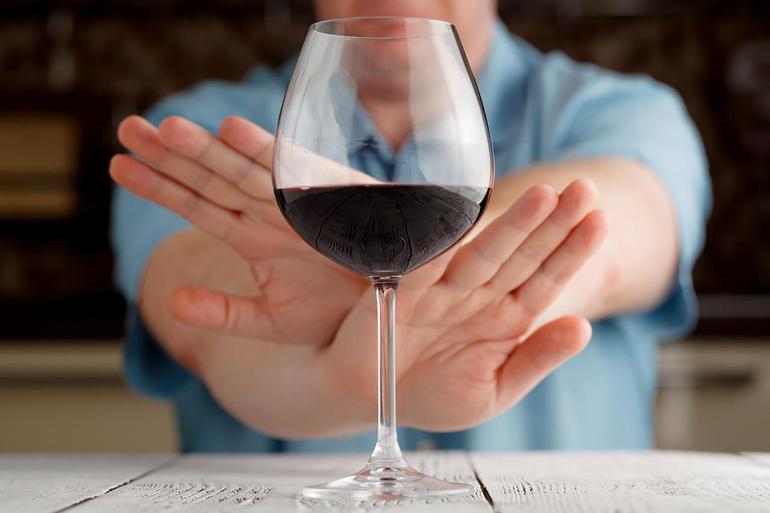
The basis of nutrition in the postoperative period consists of porridge, unsaturated broths, sour dairy products, fresh fruits and vegetables. To have enough bile to digest foods, you can eat in small portions, but more often. The volume of food taken at one time should fit into the patient’s handful. The list of necessary products is determined by the nutritionist individually for each patient.
It is recommended to complete the recovery period with sanatorium treatment, during which you should drink mineral water. This is especially true in the presence of inflammatory diseases of the liver and kidneys.
Life without a gallbladder can be filled with meaning only if you give up alcoholic beverages forever, choosing health and longevity.
Alcohol has a negative effect on all organs, and with cholecystitis it increases the load on the bile ducts, promoting the formation of stones. Stones create favorable conditions for bile stagnation, which is why inflammation occurs in the gallbladder.
According to statistics, cholecystitis is becoming an increasingly common pathology. Pain and heaviness under the right rib after eating are alarming symptoms, and if present, you should consult a doctor. There are situations when, after overeating, you need to immediately seek help from specialists.
After gallbladder removal
Don't trust doctors? There seem to be good surgeons there
says the puncture sites hurt
Could you write what you eat and how you cook it? On a piece of paper with table 5, certain products are listed, but when and in what sequence is not indicated.
Eat often and in small portions. Up to 6-7 meals maybe. 100ml. low-fat kefir is already a meal.
doctors exaggerate everything
Auntie will survive, don't worry
I was cut out on April 4 at the age of 13, on May 8 I already flew to Turkey
kefir tastes sour, but the paper says that sour is not allowed
Lemon should not be eaten dry. You can have tea with lemon. In my humble opinion, table 5 is a common women’s diet. The widest. I’ve never eaten fried, smoked, pickled, etc. in my life. For me, food hasn't changed. I always cook food for my family using a double boiler. From the 5th leaf you won’t lose weight if you were eating right before that. I haven't lost a single ounce. The operation took place on November 18.
I agree, I even gained weight at first, then I went back to my diet plan - and everything became fine
What does your flight in a month have to do with nutrition? Doctors do not prohibit flying on an airplane after surgery. And a month later I started dancing, sports, etc. again.
About alcohol - well, I have the best gastroenterologist in almost all of Russia - my mother’s best friend. So her opinion regarding alcohol is definitely not. Until the pancreas learns to cope without bile, until it can distribute bile normally without the squeak of pancreatitis and pancreatic necrosis, diet and avoid alcohol.
How do you imagine this? Should I do laparoscopy again? Should I cut my aunt's belly open again and sew it back up? :omg:
How else can you check?
Is your aunt eating, drinking, walking, pooping, peeing, is she in a normal mood?
What else is needed? The puncture sites hurt, contact the operating surgeon.
Table 5 is described in such detail on the Internet that there is nowhere else to go.
The main thing is not to eat fatty, spicy, smoked foods, eat often 4-6 times a day and in small portions. That's the whole secret.
Don’t worry about the little things, you can use low-fat kefir.
ok, I'm happy for you
I'm not paranoid, well, they cut it out and cut it out, I'm glad that you have
Can I do an ultrasound or something else?
why do you need it? Is your aunt underage? won't she figure it out on her own?
don't bother your head. Auntie will cope, there’s nothing you can do to help her now.. the bubble is gone.. She’ll figure out the rest, or read up on the internet what and how.
I’ll tell you about myself, in April 2007, I had a stone removed, in the hospital of the Ministry of Internal Affairs, the stone was one and large (the size of a quail egg). I won’t say that it bothered me, but it happened that it would press me, and they wouldn’t take me away in an ambulance. She underwent surgery to give birth... a year later she became safely pregnant and gave birth. The horror began after 3-4 months. after giving birth...that’s when I thought I was dying, such pain. Damn, they found out the stones in the stump again, scheduled the operation as planned, but we had to wait for several months.
In short, my body did not agree and during one of the attacks I called an ambulance, they took me away and operated on me a second time. 2 years after the first one.. I’m still wondering why this is so, or whether there was a grain of sand and it happened during pregnancy. or what. I’ve been living for 5 years after the 2nd operation, I eat everything in moderation, I don’t drink alcohol at all, but I drink an enormous amount of boiled coffee.. This is my weakness..
We suggest that you familiarize yourself with what is dripped for alcohol intoxication at home and in the hospital
Did your aunt ask you to help?
Did your aunt ask you to help?
In my opinion, there should be procedures and methods for postoperative observation so that it does not turn out as described by the girl who was operated on in the hospital of the Ministry of Internal Affairs.
oh, it's nice to be still a girl. I wrote to you that pregnancy could have been an option, we filled everything with hormones to the brim. Your aunt is probably not going to give birth again... But she really dreamed of having 2 children, just a goal.
Characteristics of the disease
The main reasons for the development of pathology:
- infections – bacterial, viral or parasitic;
- foci of chronic infection - caries, tonsillitis, pyelonephritis, sinusitis, etc.;
- abnormal structure of the bladder and bile ducts;
- long-term stress and depression;
- gastrointestinal pathologies;
- pregnancy;
- hormonal disorders;
- pathologies of the endocrine system, excess weight;
- a sedentary lifestyle or, conversely, intense physical activity;
- internal organ injuries;
- allergic manifestations;
- bad habits – drinking alcohol and smoking.
Consequences of cholecystectomy
So what do you need to know about this? When can you drink alcohol after gallbladder removal? Organ resection, unfortunately, does not always help solve all problems caused by impaired bile formation. Unwanted complications may appear even in the postoperative period. The development of bleeding can be caused by several factors:
- the presence of stones in the gall bladder, which make it difficult to remove the organ;
- contraction of the gallbladder walls by liver tissue.
When the vascular ligation thread slips, biliary peritonitis may develop. At the same time, bile is poured into the stomach. As a result of a violation of the integrity of the walls of the organ, a subphrenic or subhepatic abscess may also begin. At the puncture sites, suppuration forms. Possible consequences of the operation include obstructive jaundice caused by tumors and cicatricial narrowing of the ducts.
Symptoms of cholecystitis
Cholecystitis is characterized by the following symptoms:
- pain under the right rib, it can be sharp, stabbing, dull, constant;
- increase in body temperature, in the acute period - up to 39 degrees, in the chronic process - up to subfebrile values;
- increase in leukocytes in the general blood test;
- nausea, vomiting;
- loss of appetite;
- dry tongue, bitter taste in the mouth;
- weakness and constant fatigue;
- restless sleep;
- yellow skin, itching and rash;
- problems with stool: diarrhea alternates with constipation.
- symptoms of intoxication.
A characteristic feature of the course of the acute phase of the pathology is rapid development and severe pain. In this condition, a person requires hospitalization and further treatment in a hospital.
The recovery time depends on the type of surgery. With the abdominal method, the patient should be under observation for 1-3 weeks. With laparoscopy, the patient may be discharged after three days, depending on the condition.
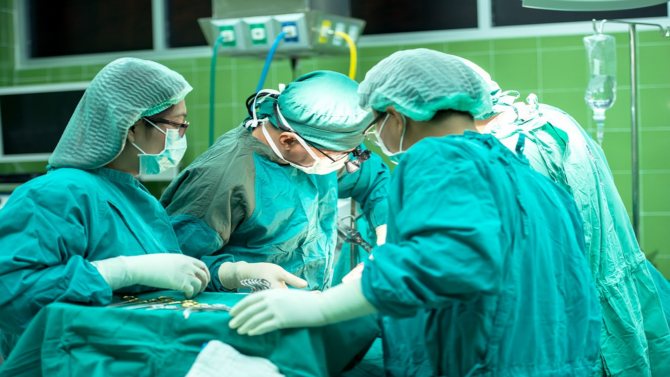
Both options for surgical intervention involve abstinence from alcoholic beverages for a long time, at best - forever, since the short euphoric state from drinking alcohol cannot be compared with the acute pain that occurs when stones move in the gall bladder during cholecystitis.
Basic conditions for successful treatment of chronic cholecystitis:
- complete cessation of alcohol and tobacco smoking;
- diet;
- physiotherapy;
- moderate physical activity (preferably in the fresh air).
The effects of alcohol on the biliary tract
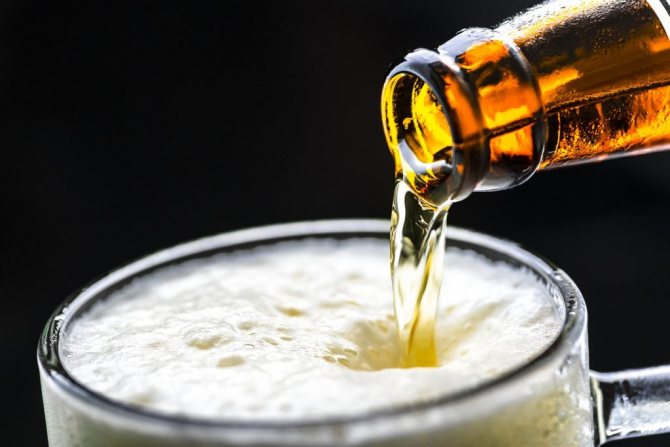
Alcohol, which ends up in the human body during the period after surgery, when broken down, releases a toxic substance - acetic acid aldehyde. It has a negative effect on the tissues of the gastrointestinal tract, and also activates inflammatory processes in the liver and biliary tract. Each alcoholic drink contains ethyl alcohol, which takes part in biochemical reactions. The body produces toxins. Since all poisons pass through the liver and leave it through the bile ducts, the ducts are gradually destroyed.
Alcohol also changes the chemical composition of bile. The concentration of acids in it decreases, and the level of cholesterol increases. This leads to the development of atherosclerosis and impaired blood supply. Typically, cholesterol is absorbed in the gallbladder. In its absence, the risk of stone formation in the bile ducts increases significantly. This is explained by the fact that after resection of the gallbladder, cholesterol remains and accumulates in the bile. Under the influence of alcohol, poisoning of the system responsible for removing bile from the body occurs. As a result, the chemical composition of the secretion produced by the liver deteriorates.
Is it possible to drink alcohol with cholecystitis?
The thing is that ethyl alcohol promotes the formation and growth of stones in the bladder. Therefore, even a small dose of an alcoholic drink can cause the movement of stones, blockage of the bile ducts and, as a result, hepatic colic.
Also, if the gallbladder is inflamed, you should not take cold food or drinks: all food should be served warm. Chilled alcohol can cause spasms and acute pain.
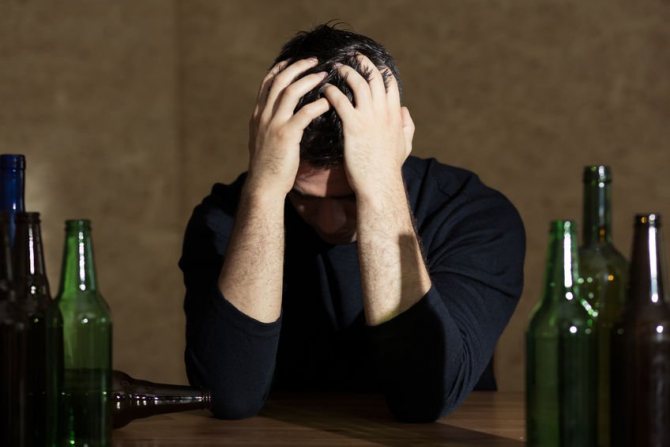
basic information
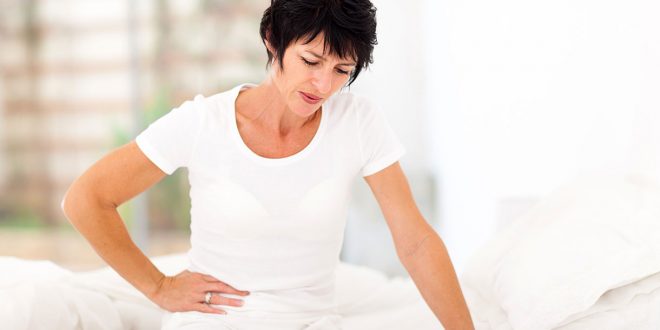
Doctors advise completely abstaining from drinking alcoholic beverages for the first time after surgery. The main task facing the patient during this period of time is to create the most favorable conditions for restoring the normal functioning of the biliary system. To achieve this result, it takes quite a lot of time. The patient must adhere to a special diet and take medications prescribed by the doctor.
Alcohol after removal of the gallbladder in any form, be it wine, vodka, cognac or champagne, can provoke gastrointestinal disorders, vomiting and an attack. Not all patients experience similar symptoms, but this does not mean that the body has already adapted to the changes that have occurred.
When can you drink alcohol after gallbladder removal? At the end of the rehabilitation period, it will be necessary to contact qualified specialists to conduct a detailed examination. If the pancreas begins to function normally, and no pathologies are detected in the bile ducts and liver, the doctor will be able to allow the intake of alcoholic beverages in moderation.
Consequences of drinking alcohol
Ethyl alcohol harms the entire gastrointestinal tract system, and in particular, promotes stagnation of bile and the formation of stones. Ethanol helps stimulate the formation of bile, but provokes sphincter spasm. Therefore, the volume of bile in the bladder constantly increases, and the organ itself stretches, which causes inflammation of the organ and its ducts.
When ethyl alcohol breaks down, acetaldehyde is formed, which has a negative effect on all tissues, as a result of which free radicals are formed in the bile itself (carbon dioxide), which leads to inflammation of the bladder and its ducts (cholangitis).
Ethyl alcohol poisoning disrupts metabolism, causing cholesterol to accumulate in the bladder. This is how stones appear.
In addition, alcohol has a detrimental effect on the entire body and causes:
- Lack of vitamins.
- Anemia.
- Inflammation of the pancreas.
- Malignant formations of the gastrointestinal tract. Colon cancer is also common in people who have had gallbladder removal.
- Violation of metabolic processes.
- Excessive production of hydrochloric acid, which can trigger reflux disease, in which acid will be thrown into the esophagus.
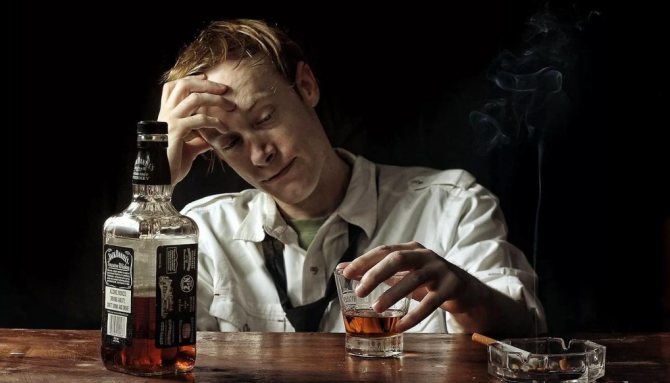
Alcohol disrupts intestinal motility and blood circulation. For this reason, people who drink also develop duodenal ulcers. Under the influence of alcohol, the gastric mucosa is constantly irritated: this is how gastritis and stomach ulcers occur.
Saliva becomes thick, which has a bad effect on the primary breakdown of substances in the mouth. The liver suffers greatly. Over time, irreversible processes may occur - the death of liver cells due to cirrhosis, fatty hepatosis, hepatitis, etc.
If you do not pay attention to the pain under the right rib, nausea and continue to drink alcohol, the disease will progress rapidly, and in some situations threaten not only the health, but also the life of the patient.
What should you eat after surgery?
When the gallbladder is removed, drinking beer or strong alcohol means developing diseases of the digestive system as a whole. For two to three years after surgery, you can only drink a lot of water and use herbal decoctions that improve bile secretion and digestion processes. When can I drink alcohol after surgery?
You can drink alcoholic drinks of different strengths only after a person with a removed gallbladder feels that his digestion is proceeding normally, and the doctor confirms this. If a small dose of alcohol does not cause severe abdominal pain, which can last for a long time and require treatment, then you can allow yourself to drink.
But reviews of people who were operated on to remove the gallbladder contain other recommendations. Typically, patients after gall removal surgery stop drinking, having experienced the negative effect of minimal doses of alcohol on the digestive system, which is already suffering without the gallbladder it needs. Immediately after the operation, they exclude fatty, fried and spicy foods from the menu.
The diet of such patients consists of unsaturated broths, cereals, fermented milk products, vegetables and fruits. These people's meals should be frequent and not plentiful. This will allow the body to digest food with a small amount of bile it has, which will not stagnate and turn into stones.
Marinated foods and baked goods, which weaken the liver, are prohibited. Such abstinence will allow the body to adapt and begin to function normally, and the person to quickly recover after surgery. Whether it is possible to consume foods such as white cabbage, black bread, vegetable oil, eggs is decided individually. During the recovery period, you must be under the supervision of your attending physician, following all his recommendations. Normalizing weight and increasing activity during normal physical activity will help improve your condition after surgery. Six months after removal of the gallbladder, sanatorium-resort treatment using mineral waters with weak mineralization is recommended.
How to alleviate the patient's condition after surgery?
To quickly adapt and restore the body after surgery, you must strictly adhere to the diet. The patient is assigned table No. 5. This menu is based on the following principles:
- all dishes are prepared by boiling or steaming;
- products should be consumed warm, excluding the consumption of excessively hot or excessively cold foods;
- the volume of liquid consumed per day should be at least 1500 ml;
- instead of regular tea, the patient is recommended to use herbal infusions;
- meals should be divided into 5-6 times;
- drinking alcohol after gallbladder removal immediately after surgery is prohibited;
- exclusion of spicy, fried, pickled, canned foods from the menu;
- removing fatty meat and fish from the diet;
- limiting the consumption of nuts, seeds, garlic, onions, spices, radishes;
- the diet should consist mainly of cereals, fruits, and vegetables;
- refusal of baked goods and confectionery, coffee, carbonated drinks, strong tea.
Liver condition
Many patients who have undergone resection are interested in whether alcohol can be consumed after gallbladder removal. What happens to the liver when drinking alcohol after such an operation? It is known that the toxins contained in alcohol destroy healthy liver cells, which disrupts the synthesis of enzymes. Alcohol breakdown products are difficult to remove from the body, which leads to the creation of favorable conditions for the progression of various pathologies. Due to the dysfunction of liver cells, the blood stops being filtered, and the blood with harmful substances present in it is spread throughout the body. In the future, hepatitis may develop. The liver acquires a yellow or pale pink tint, its surface is covered with a fatty film. With the onset of cirrhosis, the organ becomes loose, various blood clots, ulcers and scars are visualized.
Consequences
The consequences after taking it should be known, since they are significant for the whole body. In many cases, the use of such products leads to attacks of severe vomiting, stomach pain, and intestinal disorders. Such symptoms appear when there is a malnutrition. Drinking a drink in the absence of bile leads to a deterioration in the release of bile into the intestinal tract and a deterioration in the function of the pancreas. The result is the development of pancreatitis, cholangitis or cholecystitis. There is also a possibility of rapid development of liver cirrhosis with systematic use of the product. And in the biliary ducts, not only cholesterol, but also bilirubin, mixed and pigmented stones are formed.
Only by leading a correct lifestyle, with proper nutrition, moderate physical activity (hiking, light jogging, yoga, swimming are allowed), and absolutely ignoring addictions can you achieve a long-term remission in which unpleasant symptoms will not appear. Complete rejection of ethanol-containing products allows the body to restore its functions faster. It is also a good prevention of the development of possible diseases of the digestive system in the future.
Digestion process in the body after removal
If the gallbladder functions normally, digestion occurs fully. This organ also neutralizes the negative effects of pathogens. And without a gallbladder, life changes. After cholecystectomy, bile (which by nature is a natural antiseptic) no longer accumulates in the organ; it is released in small concentrations into the intestine.
Due to the low amount of thrown bile, pathogenic microorganisms develop in the intestines and the microflora is disrupted. Since now the function of bile is not fully realized, a person suffers from severe systematic pain in the abdominal area, and disorders of the digestive system appear.
